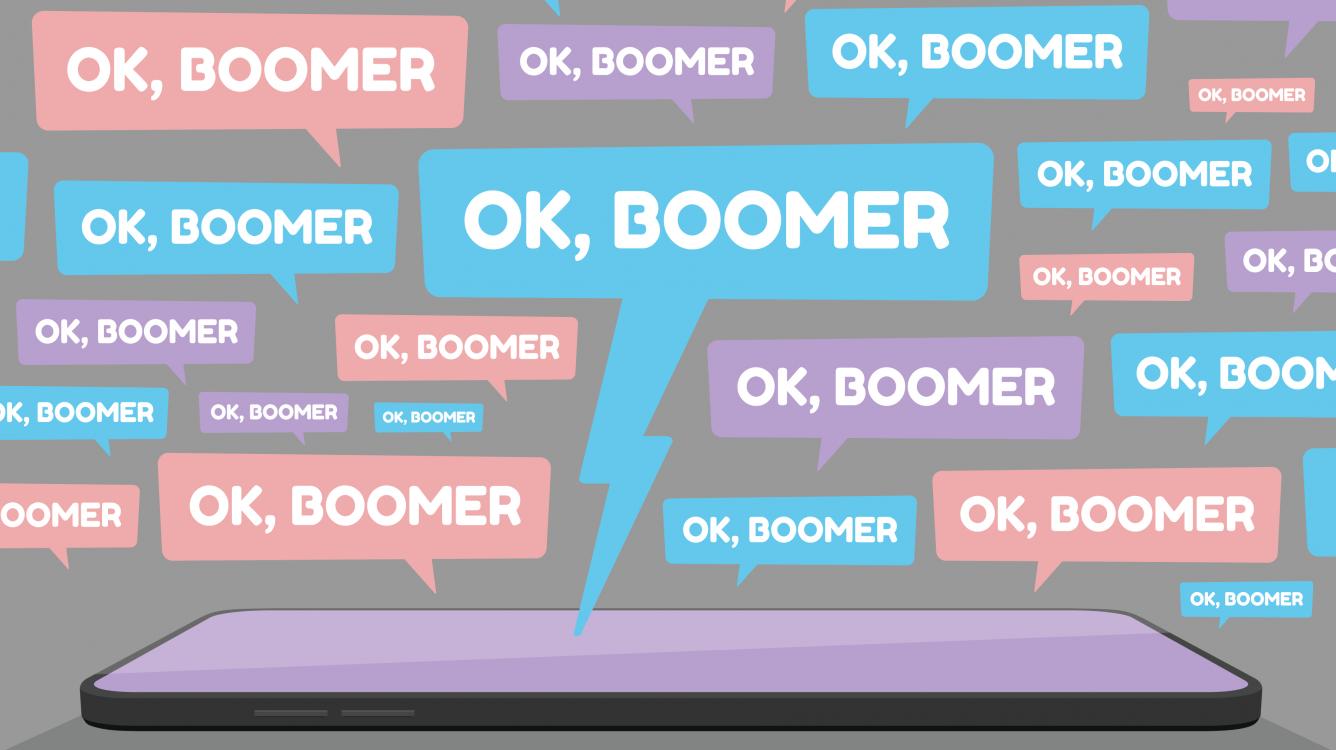
OK, Boomer: The Best Chess Players Of A Generation
The generational meme wars are heating up as "OK, boomer" (often with the necessary comma omitted) is now a catch-all reply to trump any disagreement between the young and old.
This unstoppable meme has made its way across the Internet, all over Twitch, and even (dare we say it?) into "real life."

As the popular phrase throws the spotlight on the boomers (born 1946-1964), let's rank the best chess players from this large and important post-war generation.
While this era of chess was thoroughly dominated by two giants of the game (see below), the boomer generation produced quite a few strong grandmasters.
Bobby Fischer just misses the cut, as he was born in 1943, a member of the so-called "silent generation." At the other end of the calendar, we have Vishy Anand (born 1969) ushering in the top grandmasters of "generation x."
But who were the best chess boomers? Our list is below; let us know your picks in the comments.

Honorable mention:
- Ulf Andersson (b.1951, peak rating 2655)
- Yasser Seirawan (b. 1960, peak rating 2658)
- Jaan Ehlvest (b. 1962, peak rating 2660)
- Rafael Vaganian (b. 1951, peak rating 2670)
- Jan Timman (b. 1951, peak rating 2680)
- Artur Yusupov (b. 1960, peak rating 2680)

The best chess boomers ever:
5. Mikhail Gurevich (b. 1959, peak rating 2694)
 Mikhail Gurevich. Photo by Frank Hoppe via Wikipedia.
Mikhail Gurevich. Photo by Frank Hoppe via Wikipedia.
Gurevich had an interesting chess career. He was born in the Ukraine, a part of the Soviet Union, and was the champion of both states in the late 1980s. Gurevich then made a comeback playing for Belgium, winning that country's championship in 2001 around the time of his top chess rating.
He now is a chess arbiter and trainer and was a second to Anand during his world championship years.
Here the strong boomer uses his queen, bishop and passed pawn to give Sergei Movsesian nightmares on the chessboard:
4. Alexander Beliavsky (b. 1953, peak rating 2710)

Beliavsky, another boomer born in Ukraine, was also the champion of the USSR, winning the title four times. He later joined the Slovenian federation.
He shares the record for most undisputed world champions beaten in his career. According to Wikipedia:
Paul Keres, Viktor Korchnoi, and Alexander Beliavsky are the only chess players to have defeated 9 undisputed world champions in classical games. Beliavsky has defeated every undisputed world champion from Smyslov (7th) to Carlsen (16th), except for Fischer: Smyslov, Tal, Petrosian, Spassky, Karpov, Kasparov, Vladimir Kramnik, Viswanathan Anand, Carlsen.
Beliavsky is also a chess coach and a FIDE senior trainer.
In 2006, Beliavsky took down the millennial future world champion, Magnus Carlsen:
3. Valery Salov (b. 1964, peak rating 2715)

Salov was born in Poland and was a chess prodigy, winning the world under-17 championship in 1980.
He later shared first in the USSR championship and qualified for two candidates' tournaments in the world championship cycle.
Salov played in some top tournaments in the late 1990s, but has not played in a FIDE-rated tournament in 20 years. He is an advocate of Fischer Random chess to bypass opening preparation overkill.
Here's Salov with an elegant endgame win over the fellow boomer Timman in 1991:
2. Anatoly Karpov (b. 1951, peak rating 2780)

It's a huge jump up now to number two, a legendary player whose accomplishments go far beyond what will be covered in this listicle-style blurb.
Karpov, of course, is one of the greatest chess players ever and was world champion from 1975 to 1985, bridging the gap between Fischer and Garry Kasparov.
Karpov was world number-one for 102 total months, trailing only Carlsen and Kasparov, and his world-championship matches with the latter in the 1980s defined an era of chess.
Now retired from competitive chess, Karpov serves as an ambassador of the game and is involved with humanitarian causes.
Watch as Karpov shows the superiority of his knight over Kasparov's bishop in a 1984 world championship endgame:
1. Garry Kasparov (b. 1963, peak rating 2851)

Garry Kasparov is the rare chess player who is famous above and beyond the game. A serious contender for the greatest intellectual competitor of all time, Kasparov was world champion from 1985 to 2000. He won every top tournament on the circuit, and was a trailblazer in man-vs-machine chess, beating IBM's supercomputer Deep Blue before losing the rematch.
Kasparov retired from competitive chess in 2005, but is still active as an occasional player, politician and general chess celebrity. He is also notable for his accomplishments as a chess author and a humanitarian.
There is no debate: Garry Kasparov is the best chess boomer of all time. More than OK—Kasparov is great.
How do you pick which Kasparov game to show? Here's perhaps his best-known and best-played game, a 1999 masterpiece vs Topalov.



